- Have any questions?
- +91 90084 82284
- info@drsridharpsoncologist.com
Basal Cell Carcinoma Untreated For 5 Years

Proton Therapy for Rectal Cancer
July 8, 2024
Bladder Cancer Recurrence After 3 Months
July 26, 2024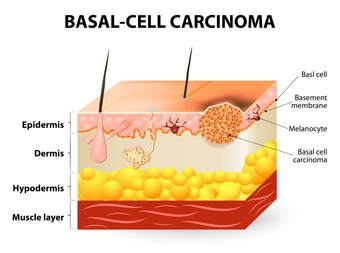
Basal cell carcinoma (BCC) is the most common type of skin cancer. If neglected, especially for an extended period like five years, it can lead to significant complications. Recent statistics show that approximately 70% of skin cancer deaths occur due to untreated basal cell carcinoma worldwide. In India, over 80% of skin cancer cases go undiagnosed and untreated, leading to potentially devastating consequences.
“Basal cell carcinoma if left untreated can lead to severe disfigurement and health issues. Hence, early detection is crucial for effective management,” advises Prof. Dr. Sridhar Papaiah Susheela, the renowned expert for CyberKnife treatment in India.
Prof. Dr. Sridhar P S is an esteemed CyberKnife specialist in India with over 26 years of experience. He has extensive knowledge and expertise in diagnosing and treating skin cancers, including advanced cases of BCC. His work with the CyberKnife system, a non-invasive treatment option, provides patients with innovative solutions to manage and treat their conditions effectively.
This blog explores the symptoms, implications, prevention strategies and treatment options for basal cell carcinoma untreated for 5 years.
Symptoms of Untreated Basal Cell Carcinoma
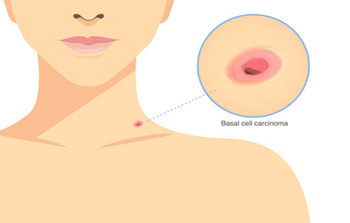
Basal cell carcinoma can present various symptoms that may worsen if not addressed promptly. Recognizing these signs early is crucial for effective treatment. Common symptoms include:
- Open Sores: Persistent, non-healing sores that bleed, ooze, or crust over.
- Red Patches: Red, irritated patches of skin that may itch or hurt.
- Pink Growths: Pinkish, raised growths with a rolled edge and a central indentation.
- Shiny Bumps: Pearly or waxy bumps on the skin, often with visible blood vessels.
- Scar-like Areas: White, yellow, or waxy areas that resemble a scar.
“These symptoms can often be mistaken for other skin conditions. Hence, it essential to seek a professional evaluation if any of these signs are present,” recommends Prof. Dr. Sridhar P S, an esteemed specialist for CyberKnife treatment in India.
Are you noticing unusual skin changes? Don’t wait. Consult an expert today.
What will happen if basal cell carcinoma left untreated for 5 years? Let’s find out.
Consequences of Leaving Basal Cell Carcinoma Untreated for 5 Years
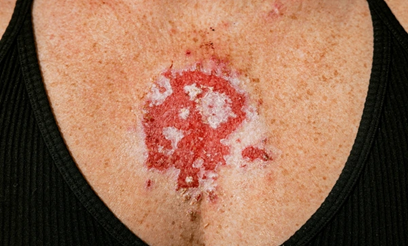
Ignoring basal cell carcinoma for an extended period can lead to serious health issues:
- Tissue Damage:
The carcinoma can invade deeper layers of the skin and underlying tissues, causing extensive damage.
- Increased Risk of Infection:
Open sores can become infected, leading to further complications.
- Disfigurement:
Advanced BCC can lead to significant facial or body disfigurement, particularly when located in visible areas.
- Metastasis:
Although rare, untreated BCC can spread to other parts of the body, posing a life-threatening risk.
- Bone Involvement:
In severe cases, the cancer can spread to bones, leading to pain and structural issues.
- Treatment Complexity:
Advanced BCC requires more aggressive and complex treatments, including surgery and radiation.
Are there ways to prevent the progression of basal cell carcinoma if left untreated for years? Here’s what you need to know.
How Can I Prevent Basal Cell Carcinoma From Progressing if It Has Been Untreated for Years?
- Regular Monitoring: Frequent skin checks by a dermatologist to catch any changes early.
- Sun Protection: Use sunscreen and protective clothing to reduce UV exposure, which can aggravate the condition.
- Avoid Tanning Beds: Refrain from using tanning beds, which increase skin cancer risk.
- Healthy Lifestyle: Maintain a healthy diet and lifestyle to boost your immune system.
- Prompt Treatment: Seek immediate medical treatment if you notice any suspicious changes in your skin.
Following these steps can help manage the condition and prevent further complications.
Your skin health is important. Contact a specialist for personalized advice.
Curious about the treatment options? Let’s explore them.
Treatment for Basal Cell Carcinoma
Treatment options for basal cell carcinoma vary depending on the tumor’s size, location, aggressiveness and the patient’s overall health and preferences. Here are some common treatment modalities:
- Topical Medications:
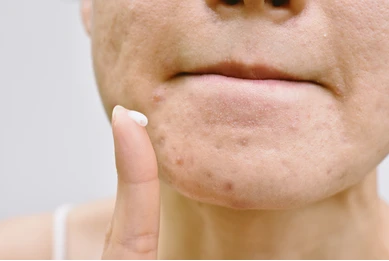
Your doctor may prescribe topical medications, such as imiquimod or 5-fluorouracil. These can be applied directly to the skin to stimulate the body’s immune response and kill cancer cells. They are typically used for superficial basal cell carcinomas or as adjuvant therapy following other treatments.
- Surgical Treatments:
- Excisional Surgery:
The tumor is surgically removed along with some surrounding healthy tissue to ensure the complete elimination of cancer cells.
- Mohs Surgery:
A precise surgical technique that removes cancerous tissue layer by layer while sparing as much healthy tissue as possible.
- Cryosurgery:
Involves freezing cancer cells with liquid nitrogen to destroy abnormal tissue.
- Laser Surgery:
Utilizes laser beams to remove cancerous cells with minimal damage to surrounding tissue.
- Curettage and Electrodesiccation:
Scraping away the cancerous tissue and cauterizing the area to kill any remaining cells.
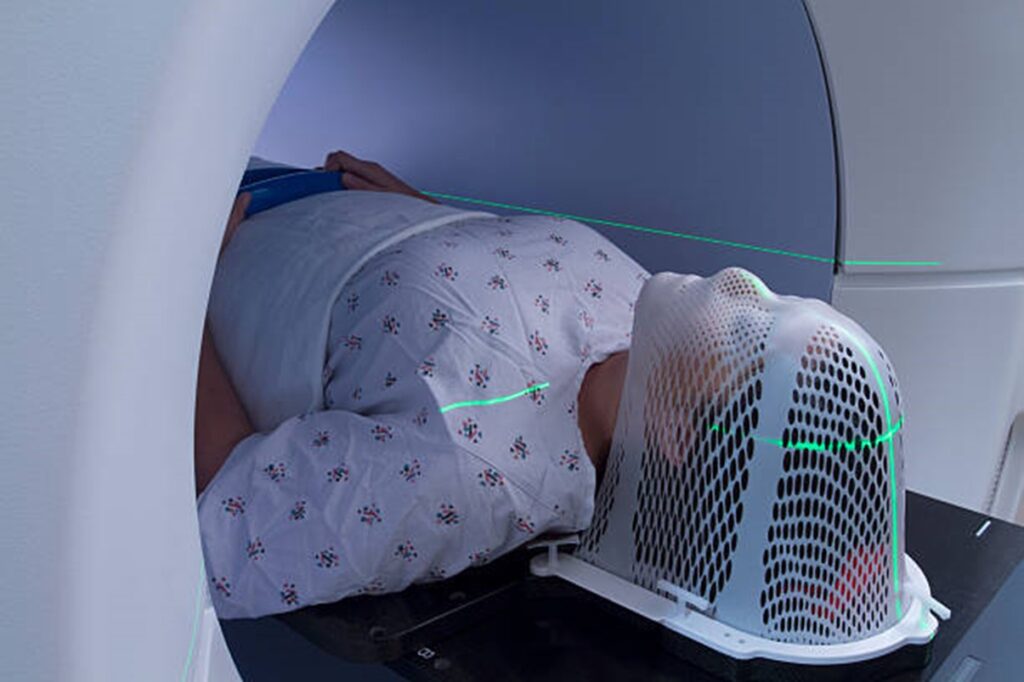
Radiation therapy uses high-energy beams to target and destroy cancer cells. Oncologists often recommend radiotherapy for patients who are not suitable for surgery or those with tumors in hard-to-reach areas.
- External Beam Radiation:
This is the most common type of radiation therapy for basal cell carcinoma. It involves directing radiation beams from an external machine towards the tumor.
- Brachytherapy:
In some cases, radioactive implants may be placed directly into or near the tumor to deliver radiation internally.
Each procedure has advantages and is chosen based on the severity of the individual case and cancer.
Explore your treatment options with a seasoned professional. Schedule a consultation for detailed insights and personalized care.
When to Consult the Doctor
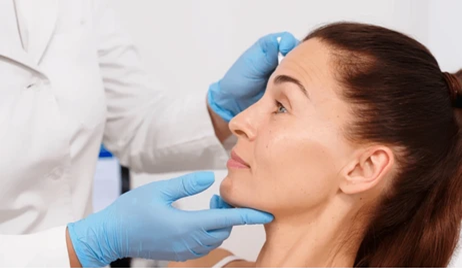
Regular skin examinations are essential for the early detection of suspicious lesions. If you notice persistent sores, unusual growths, or changes in your skin, seek immediate medical attention.
Additionally, if you have a history of skin cancer or are at higher risk due to factors such as prolonged sun exposure, fair skin, or a family history of skin cancer, regular check-ups with a specialist are crucial.
Monitoring your skin health and consulting with a professional can ensure timely intervention, reducing the risk of complications from untreated basal cell carcinoma.
Conclusion
Basal cell carcinoma untreated for 5 years can lead to severe complications, including tissue damage, disfigurement, and even life-threatening conditions. Prof. Dr. Sridhar Papaiah Susheela emphasizes the importance of timely intervention and professional care in managing and treating this condition. By staying vigilant and consulting with an expert, you can take control of your skin health and prevent the progression of untreated basal cell carcinoma.
FAQs:
Is radiation a good treatment for basal cell carcinoma?
Radiation therapy can effectively treat basal cell carcinoma, particularly for those unsuitable for surgery or with hard-to-treat tumors.
How many years does it take for basal cell carcinoma to spread?
Basal cell carcinoma typically grows slowly and rarely spreads to other body parts. However, if left untreated, it can become locally invasive over time.
Can basal cell carcinoma heal without surgery?
Sometimes, non-surgical treatments like cryotherapy or topical medications may be sufficient for healing, especially for superficial basal cell carcinomas.
What happens if you don’t remove basal cell carcinoma?
If basal cell carcinoma is not removed, it can grow and invade surrounding tissues. It can potentially cause disfigurement and other complications.
Can basal cell carcinoma come back after treatment?
Basal cell carcinoma can recur after treatment, especially if not completely removed or if the patient continues to be exposed to the sun without protection.
Reference links:
https://my.clevelandclinic.org/health/diseases/4581-basal-cell-carcinoma
